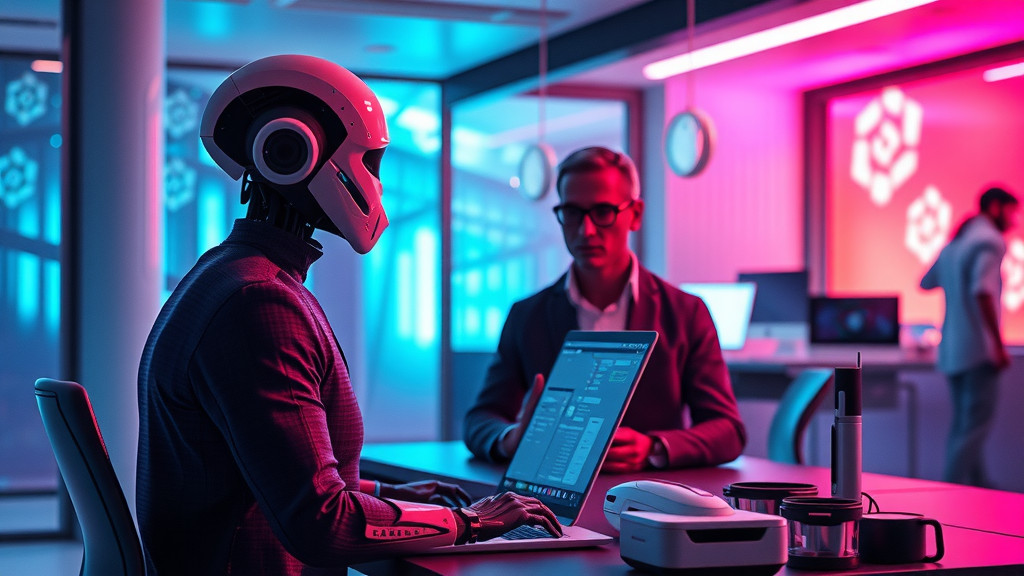The AI Revolution: Innovations, Challenges, and Future Prospects
As we stand on the precipice of a new era, artificial intelligence (AI) is not just a technological advancement but a transformative force that is reshaping industries, economies, and societies. From the proliferation of AI-driven tools to the strategic integrations of AI in enterprise solutions, the implications of this technology are both profound and far-reaching.
AI Tools and Generative Apps
The landscape of AI tools and generative apps has seen a significant expansion in 2024. These tools are no longer confined to specialized sectors but are now accessible to a broader audience, enabling creativity and innovation across various domains. The best AI tools of 2024, as highlighted by MSN, offer a glimpse into how AI is democratizing access to sophisticated technologies, making them indispensable for professionals and enthusiasts alike.
Enterprise AI Agents
Intelligent software, known as enterprise AI agents, are emerging as a natural outcome of generative AI. Salesforce's MuleSoft has introduced a composability solution to help organizations build discrete AI services, tackling complex planning and reasoning problems by converting them into simpler search problems. This approach allows customers to create autonomous agents equipped with specific tasks and tools, facilitating a significant impact on operational performance. The notion of autonomous agents simplifying work for various creators and business users in the enterprise is a testament to the evolving role of AI in daily operations.
Multicloud AI Strategies
The multicloud AI strategies discussed at Microsoft Ignite 2024 underscore the importance of secure, scalable, and integrated AI solutions across complex technology landscapes. Companies like Dell Technologies and Aviatrix Systems are emphasizing zero-trust security measures and streamlined operations, respectively, to safeguard customer data and enhance security for AI applications in multicloud environments. These strategies are pivotal for businesses seeking seamless connectivity and robust data access, highlighting the critical role of multicloud AI in driving trust and resilience in hybrid cloud landscapes.
AI-Centric Browsers and Operating Systems
The advent of AI-centric browsers like Dia, developed by The Browser Company, signifies a new era where AI will be an environment built on top of a web browser. These browsers offer tools that assist users in writing, researching, and performing various online tasks, indicating a shift in how consumers interact with online businesses. Simultaneously, the concept of an AI operating system, as proposed by /dev/agents, aims to connect AI services across platforms, potentially transforming commerce by enabling virtual shopping agents to manage tasks across multiple retailers and websites.
AI in Retail and Customer Service
AI chatbots are increasingly becoming a part of the retail experience, offering enhanced customer service and personalized shopping assistance. Companies like Amazon, Walmart, and Shopify are leveraging AI to provide tailored recommendations and streamline the shopping process. However, the technology is still in its infancy and faces challenges such as inaccuracies and limitations in personalization. Despite these hurdles, the potential for AI to transform the retail and customer service sectors is immense.
Key Takeaways
- Democratization of AI: AI tools and generative apps are becoming more accessible, fostering creativity and innovation across various sectors.
- Enterprise Integration: Enterprise AI agents are simplifying work for business users, enhancing operational performance through autonomous task execution.
- Security and Scalability: Multicloud AI strategies are crucial for ensuring secure, scalable, and integrated AI solutions in complex environments.
- New Interfaces: AI-centric browsers and operating systems are redefining user interactions, promising a more intuitive and efficient online experience.
- Retail Transformation: AI chatbots in retail are improving customer service and personalization, though challenges remain in accuracy and full automation.
Conclusion
The AI revolution is not just about technological advancements but about how these innovations are being integrated into our daily lives and business operations. As we navigate this transformative journey, the interplay between innovation, security, and user experience will define the future of AI.
Sources
- MSN
- Enterprise AI agents: MuleSoft's composability solution
- Multicloud AI strategies and security innovations at Ignite 2024
- AI data center builder Nebius raises $700M in funding
- Can AI chatbots make your holiday shopping easier?
- Browser Company Heralds Arrival of AI-Centric Browser Dia
- Cooperating AI Agents Could Redefine How We Shop and Sell
- House Panel Leaders Want Study of AI and Financial Services
- AWS Announces New Data Center Components to Support AI Innovation and Further Improve Energy Efficiency : @VMblog
- AWS Generative AI Accelerator: Empowering startups to innovate
